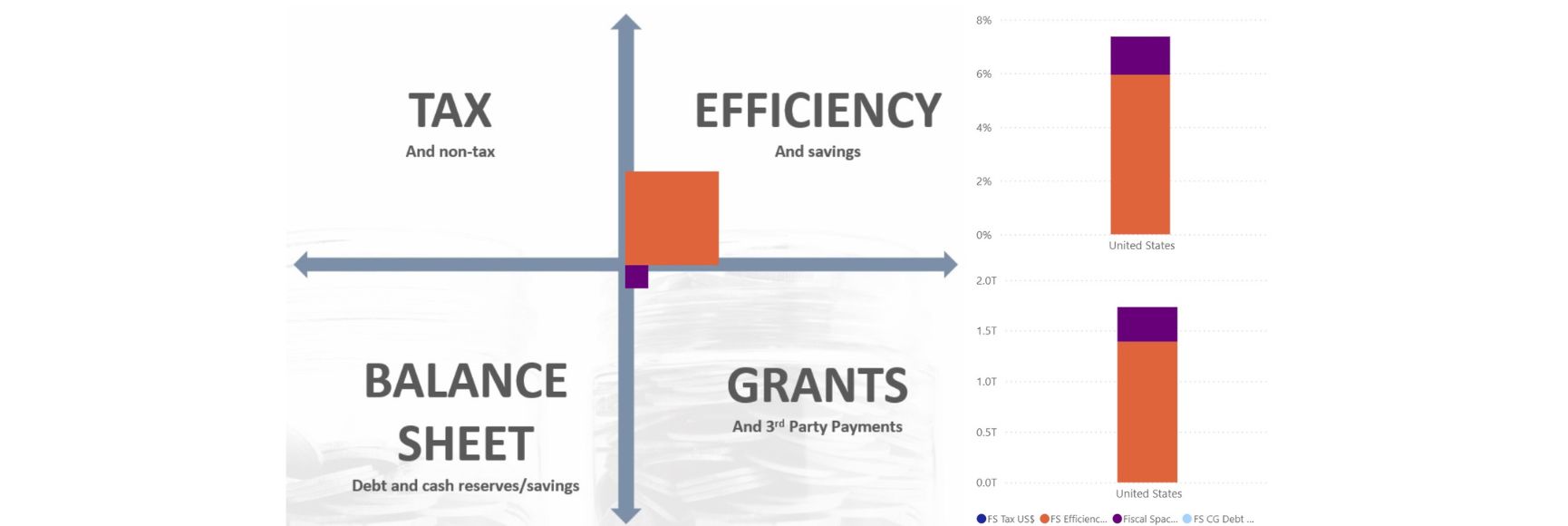Posted by Ian Lienert
Against the backdrop of a severe fiscal crisis in some European countries, the Korean Institute of Public Finance (KIPF) hosted an International Fiscal Experts Forum in early December 2010. A major aim was to promote an exchange of views on fiscal policy issues, countries’ responses to the crisis, and relevant issues for Korea. The workshop brought together a number of prominent speakers, scholars, and practitioners from various countries. The topics covered included: fiscal policies after the crisis, budget performance management, accrual accounting, the impact of the crisis on subnational governments, and recent issues in legal frameworks for budget systems.
Mr. Colin Forthun of the OECD’s Budgeting and Public Expenditures Division outlined present and projected fiscal situations in the OECD area. Although the average overall fiscal deficit in OECD countries bottomed out at about 8 percent of GDP in 2009, the reduction in imbalances during 2010-12 is expected to be gradual. As a result, public debt will continue to rise in OECD countries, exceeding 100 percent of GDP in 2012. Concerning fiscal consolidation strategies, Mr. Forthun identified three groups of countries: (1) those that have a large consolidation need and have announced a fiscal consolidation plan; (2) those that have a large consolidation need and have yet to announce a fiscal consolidation plan (notably Japan and the United States); and (3) those countries (e.g., those in Scandinavia, Australia, Canada, Korea) with smaller consolidation needs and an announced fiscal consolidation plan. The presentation also focused on the main types of revenue-raising or expenditure-reducing measures that have already been announced and/or being implemented in OECD countries, as well as institutional reforms underway in some OECD countries.
Mr. Ake Nordlander, Deputy Budget Director of Sweden’s Ministry of Finance, indicated that performance budgeting does not exist in Sweden and that the approach to performance management is changing. In particular, the previous division of the budget by “activities” is being abolished, and less focus is being placed on annual performance targets as described in annual letters of appropriations. His presentation led to an interesting discussion as to why Sweden, which is seen by many outside observers to be a leader in performance-oriented budgeting and management, is pulling back somewhat in performance management. A major reason for this is that, over time, feed-back requirements from the government to the agencies had increased to a point where it had become difficult for the agencies to ascertain the main priorities.
Performance management is also affected by “gaming”—behavior to obtain a higher performance score than merited. This aspect was ably examined by Professor Dongsung Kong of Sunkyunkwan University. Using data for Korea, a number of interesting results were presented, including that administrative support and policy planning are more likely to cause gaming because their performance indicators are hard to measure and verify. Also, there is more gaming when beneficiaries of government services are less sensitive to performance. Given gaming, performance-related pay is unlikely to work as a motivating mechanism.
Accrual accounting systems are expanding in OECD countries, according to Mr. Jón Blöndal, Head, Budgeting and Public Expenditure Division, OECD. This is because many countries have recognized the resulting improvements in cost information and accountability in budget execution, and a better basis for long-term fiscal sustainability analysis through comprehensive balance sheet considerations. However, there are number of difficult implementation issues when introducing accrual accounting. In Korea, Professor Kyung-Ho Kim of Hongik University noted that it has taken 15 years for Korea to adopt accrual accounting, and there are still a number of items on the unfinished agenda, especially the need to prepare more reliable financial statements.
In contrast to the generalized acceptance of accrual-based accounting, there is much less consensus in OECD countries on the usefulness of introducing accrual-based budgets. According to Mr. Blöndal, only three OECD countries—Australia, New Zealand, and the United Kingdom—have introduced such budget systems. And in the case of Australia, there is currently a movement back towards cash appropriations.
Fiscal decentralization varies enormously in OECD countries, with the share of subnational spending in total general government spending exceeding 50 percent in both federal (e.g., Canada and Switzerland) and unitary countries (e.g., Denmark). Mrs. Claire Charbit of OECD’s Regional Development Policy Division showed that the fiscal crisis has had varying impacts in OECD countries. On the revenue side, most, but not all, OECD countries’ subnational government’s revenues generally held up better during 2007-09 than those for central government. In contrast, in an attempt to shore up economic activity, in most (but again, not all) OECD countries, the expansion of central government expenditure during 2007-09 was higher at central government level than at subnational government levels. This is despite the fact that government investment in most OECD countries is largely implemented at the subnational level and that some countries’ fiscal stimulus packages included “quick-acting” investment projects.
In my presentation on the recent evolution of legal frameworks in OECD, I first pointed out that the extent to which law is used to “enforce” fiscal consolidation has varied enormously in OECD countries during the past 30-40 years. There has been a noticeable lack of success in incorporating quantitative fiscal rules into laws in G-20 countries (e.g., India in 2003-07; Japan in 1997; USA in 1985-89). Nonetheless, a Fiscal Responsibility Law with qualitative rules can be a useful adjunct for bringing about fiscal consolidation. In this context, I mentioned the adoption, in February 2010, of the Fiscal Responsibility Act in the United Kingdom; the fiscal consolidation strategy outlined by the previous government in the Act was strengthened by the new government. A strength of the U.K.’s Act is that the legislation did not need to change with a change in government. This contrasts with U.S. budget-related legislation, which may be of limited duration and allowed to lapse when there is a change of “government” (administration); an example is the lapsing of the Budget Enforcement Act in 2002 by the Bush administration. During the workshops, there was a generalized consensus that attaining macro-fiscal stability is largely dependent on the political commitment of country authorities to take the necessary policy action to reduce unstable fiscal and debt positions, and not on the adoption of a “fiscal stability law”.
In concluding, Dr. Dong-Kun Kim, Co-President of the Forum, noted that, in view of each country’s specific institutional and political settings, country-specific actions are needed to bring about fiscal adjustment. Although Korea is somewhat better placed than most other OECD countries, there is no room for complacency, as several Korea-specific problems need to be addressed to improve the quality of fiscal management. Dr. Kim also added a warning: while Korea has an ambitious program for upgrading its budget management and accounting systems, the country should not be in too much of a hurry to benchmark itself on advanced OECD country standards, since even in those countries, budget (performance) management systems are still evolving. Indeed, for some “advanced” reforms—performance-based or accrual budgeting—some of the world leaders are taking steps “backwards”.
The agenda of the KIPF’s seminar is attached below. The KIPF has prepared a webpage relating to the Fiscal Forum; this link enables you to view the various presentations made at the seminar.
Download Agenda for KIPF Fiscal Experts Forum
Note: The posts on the IMF PFM Blog should not be reported as representing the views of the IMF. The views expressed are those of the authors and do not necessarily represent those of the IMF or IMF policy.





